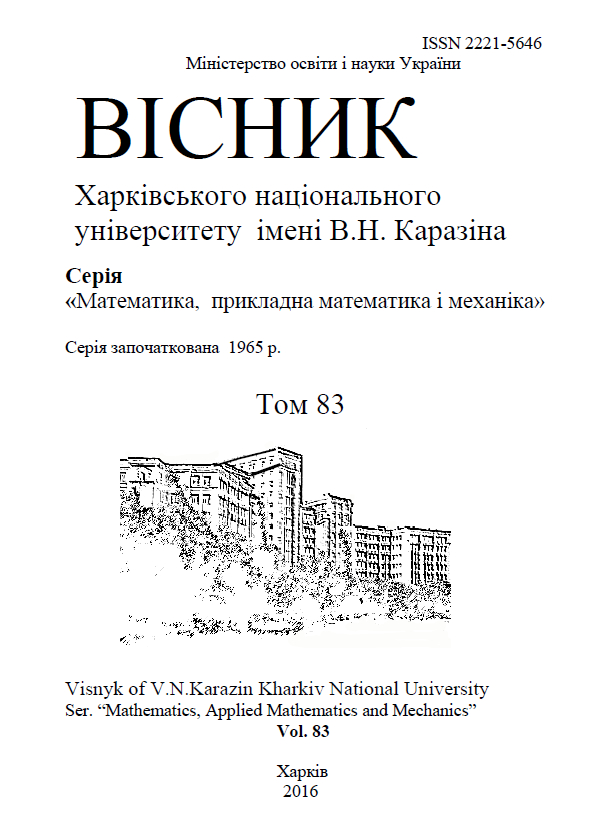Controllability of evolution partial differential equation
Abstract
Null-Controllability of any evolution partial differential equation with constant coefficients in the space of infinitely differentiable rapidly decreasing functions is proved. Conditions under which a control is independent of time are given. Bang-bang controls for the classical equations of mathematical physics are considered.
Downloads
References
L.V.Fardigola, Controllability Problems for the String Equation on a Half-Axis with a Boundary Control Bounded by a Hard Constant, SIAM J. Control Optim., 2008. -Vol. 47, No. 4. - P. 2179-2199.
Макаров А.А. Существование корректной двухточечной краевой задачи в слое для систем севдодифференциальных уравнений. / Дифференциальные уравнения, -- 1994. -- Т.~30. -- №~1. -- С.~144 -- 150.
Макаров А.А. Управляемость эволюционной системой дифференциальных уравнений в частных производных. /Тезисы международной конференции памяти Ляпунова, Х. -- 2007. -- С.~184 -- 185.
Волевич Л.Р., Гиндикин С.Г. Обобщенные функции и уравнения в свертках. / Волевич~Л.~Р., Гиндикин~С.~Г. -- М. : Наука, 1994. -- 336с.
Левин Б.Я. Распределение корней целых функций. / М. : Физматгиз, 1956. -- 632с.
Фардигола Л.В. Интегральная краевая задача в слое для системы дифференциальных уравнений в частных производных. / Мат. сборник, -- 1995. -- Т.~186. -- №~11. -- С.~123 -- 144.
Citations
Controllability conditions for evolutionary systems of linear partial differential equations
Makarov Alexander & Nikolenko Iryna (2025) V. N. Karazin Kharkiv National University. Ser. Mathematics, Applied Mathematics and Mechanics
Crossref
The copyright holder is the author.
Authors who publish with this journal agree to the following terms:
1. Authors retain copyright and grant the journal right of first publication with the work simultaneously licensed under a Creative Commons Attribution License that allows others to share the work with an acknowledgement of the work's authorship and initial publication in this journal. (Attribution-Noncommercial-No Derivative Works licence).
2. Authors are able to enter into separate, additional contractual arrangements for the non-exclusive distribution of the journal's published version of the work (e.g., post it to an institutional repository or publish it in a book), with an acknowledgement of its initial publication in this journal.
3. Authors are permitted and encouraged to post their work online (e.g., in institutional repositories or on their website) prior to and during the submission process, as it can lead to productive exchanges, as well as earlier and greater citation of published work (see The Effect of Open Access).




